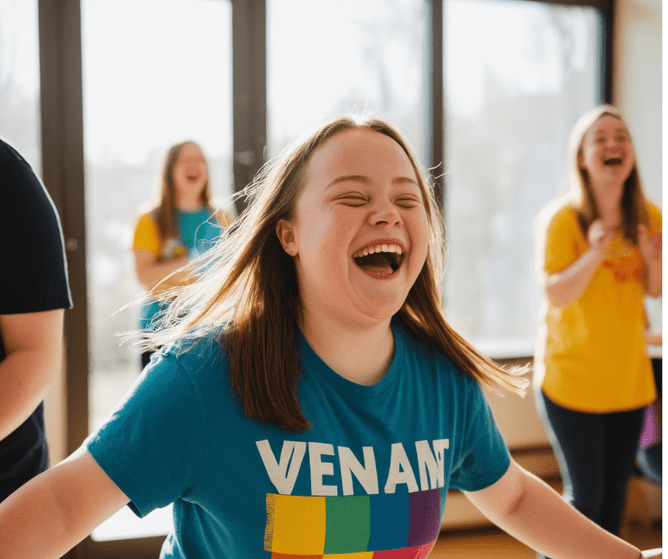Embracing Abilities: Supporting Inclusion for People with Down Syndrome
Supporting inclusion for people with Down syndrome goes beyond just providing access to services. It's about fostering a mindset that values every individual’s abilities, creating growth opportunities, and encouraging participation in every aspect of community life. By embracing the strengths of those with Down syndrome, we enhance not only their lives but the quality of life for everyone around them.
Embracing Abilities
When we choose to focus on abilities, rather than limitations, we open doors to richer experiences for everyone. People with Down syndrome, like all individuals, have unique gifts to offer. Recognising and celebrating these gifts can help foster a deep sense of belonging. Small acts of inclusion, such as inviting someone to participate in team activities or creating opportunities for them to participate in community events, break down barriers and encourage connections. These connections contribute to a vibrant community where differences are celebrated and everyone’s voice is heard.
Creating Inclusive Spaces
For inclusion to truly take root, schools, workplaces, and other environments must welcome people with Down syndrome. This means designing spaces that allow them to contribute and thrive, tailored to their strengths and needs. Educators and employers play a pivotal role in ensuring that their practices encourage diversity. When learning approaches and job responsibilities align with their abilities, they are empowered to succeed. This sense of accomplishment not only nurtures personal growth but also helps build long-lasting friendships. Inclusive environments give people the confidence to contribute, leading to greater societal success.
The Role of Families and Communities
Families are often the first and strongest advocates for individuals with Down syndrome. Their support is critical to growth and development. By engaging with local communities, families help raise awareness, share personal experiences, and promote understanding. Through their efforts, the narrative around it shifts from one of limitation to one of possibility. Families also play a key role in strengthening support systems, sharing resources, and connecting with others who share a similar journey. Community programs involving families help bridge the gap between people with Down syndrome and the broader world, creating opportunities for collaboration and positive change.
Teaching the Next Generation
Young people play an integral role in shaping the future. By fostering an inclusive attitude in children, we help create a more empathetic society. Teaching kids about Down syndrome and other forms of diversity encourages compassion, understanding, and respect for all individuals. Schools can create opportunities for children to engage with diversity through simple, yet impactful activities like storytelling, art projects, and discussions about disabilities. These activities help children see differences as strengths rather than challenges, setting the stage for future generations to be natural advocates for inclusion.
The Power of Inclusion
Ultimately, when we embrace abilities and focus on inclusion for people with Down syndrome, we create a more enriching environment for everyone. Inclusive communities value differences and celebrate what makes each person unique. The benefits are felt throughout society as a whole. Through inclusive community events, artistic exhibitions, and collaborative initiatives, we showcase the talents of individuals with Down syndrome and provide platforms for meaningful interactions. By focusing on abilities and creating spaces for everyone to contribute, we can build communities that are supportive, vibrant, and truly inclusive.
Conclusion
Looking ahead, supporting inclusion for people with Down syndrome is not just about recognising their needs; it’s about acknowledging their abilities and the value they bring to our communities. By creating spaces for growth, learning, and participation, we empower individuals to reach their full potential. Through a collaborative, inclusive approach, we can foster a culture where every person is valued, every contribution is appreciated, and the strengths of all individuals are embraced. At Holistic Strength, we are committed to supporting people with Down syndrome and other abilities, through our allied health services to help individuals achieve their goals and live fulfilling lives.
